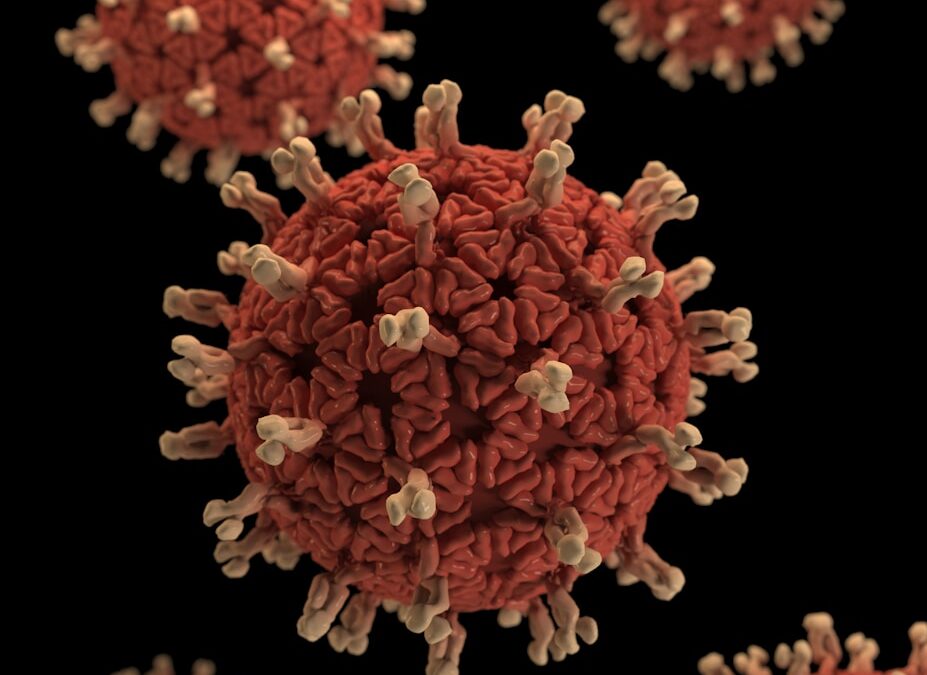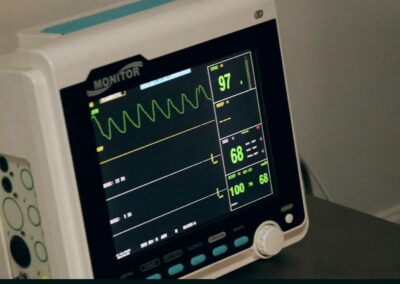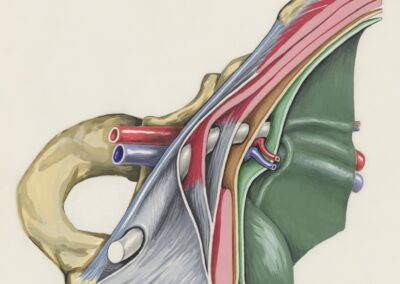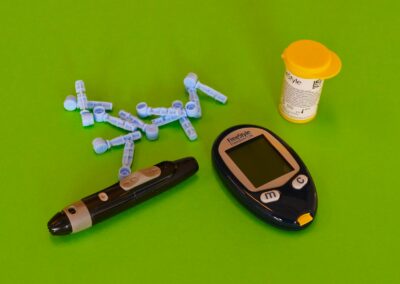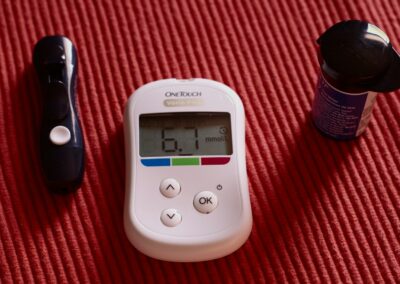Revolutionizing Autoimmune Disease Management with Digital Twins
Understanding the Role of Digital Twins in Healthcare
The application of digital twins in autoimmune disease management represents a groundbreaking advancement in personalized medicine. Digital twins are virtual replicas of physical entities, allowing for real-time simulation and analysis of various processes. In healthcare, digital twins create detailed models of patients, enabling continuous health monitoring and tailored interventions. This technology has immense potential to improve patient outcomes, especially for those suffering from complex autoimmune diseases.
Countries like Saudi Arabia and the UAE are at the forefront of integrating digital twin technology into their healthcare systems. These nations, known for their rapid adoption of advanced technologies, are leveraging digital twins to enhance patient care. By providing comprehensive and real-time data, digital twins enable healthcare providers to monitor the progression of autoimmune diseases closely, detect early signs of flare-ups, and adjust treatment plans accordingly. This proactive approach ensures timely interventions, potentially preventing severe complications and improving overall patient health.
For business executives and entrepreneurs in the healthcare sector, investing in digital twin technology offers a strategic advantage. It not only aligns with the vision of providing world-class healthcare services in regions like Saudi Arabia and the UAE but also drives innovation in patient care. By adopting digital twins, healthcare providers can deliver more personalized and effective treatments, positioning themselves as leaders in the medical technology landscape.
Personalized Health Monitoring for Autoimmune Diseases
The use of digital twins in autoimmune disease management is particularly beneficial for personalized health monitoring. Autoimmune diseases, characterized by the immune system attacking the body’s own tissues, require meticulous monitoring and tailored interventions. Digital twins enable continuous tracking of a patient’s health status, providing insights into disease progression and treatment efficacy. This level of monitoring is crucial for managing conditions like rheumatoid arthritis, lupus, and multiple sclerosis.
In healthcare systems across Riyadh and Dubai, digital twins are being utilized to monitor patients with autoimmune diseases in real-time. These virtual models track vital health metrics, including immune system activity, inflammation levels, and organ function. By analyzing this data, healthcare providers can detect early signs of disease exacerbation and adjust treatments promptly. This proactive approach not only enhances patient care but also reduces the need for hospitalizations and emergency interventions.
Moreover, digital twins facilitate remote patient monitoring, a significant advantage for regions with vast geographical areas like Saudi Arabia. Patients can receive continuous care from the comfort of their homes, reducing the need for frequent visits to healthcare facilities. This capability is especially valuable in managing chronic conditions, where consistent monitoring and timely adjustments are essential for maintaining optimal health.
Enhanced Interventions through Digital Twins
One of the most significant advantages of digital twins in autoimmune disease management is their ability to enhance interventions through precise and personalized care. By creating a virtual replica of a patient’s body, healthcare providers can simulate different treatment scenarios and predict their outcomes. This capability allows for the optimization of treatment plans, ensuring that each patient receives the most effective therapies tailored to their unique health profile.
In the UAE and Saudi Arabia, healthcare providers are leveraging digital twins to improve the management of autoimmune diseases. For instance, in patients with rheumatoid arthritis, digital twins can simulate the effects of various medications, helping doctors choose the most effective treatment with the least side effects. Similarly, for patients with lupus, digital twins can predict disease flares and guide preemptive interventions, reducing the severity of symptoms and improving quality of life.
Personalized interventions not only improve treatment efficacy but also boost patient adherence and satisfaction. When patients receive care that is specifically designed for their condition, they are more likely to follow medical advice and remain engaged in their treatment plans. This increased engagement leads to better health outcomes and higher patient satisfaction, aligning with the goals of healthcare systems in Riyadh and Dubai to provide top-tier medical services.
Challenges and Future Prospects
While the benefits of digital twins in autoimmune disease management are immense, there are challenges that need to be addressed to fully realize their potential. Ensuring the accuracy and reliability of digital twins is paramount. High-quality data collection and robust algorithms are essential to create precise and actionable virtual models. Additionally, integrating digital twins into existing healthcare systems requires significant investment in technology and training for healthcare professionals.
In regions like Riyadh and Dubai, where healthcare infrastructure is rapidly evolving, there is a strong commitment to overcoming these challenges. Governments and healthcare providers are investing in advanced technologies and fostering partnerships with tech companies to drive the implementation of digital twins. By addressing these challenges, the healthcare sector can unlock the full potential of this transformative technology.
Looking to the future, the role of digital twins in healthcare is set to expand. Advancements in artificial intelligence and machine learning will further enhance the capabilities of digital twins, making them even more powerful tools for health monitoring and personalized care. As the technology evolves, digital twins will become an integral part of healthcare, driving improvements in patient outcomes and operational efficiency.
Conclusion: Embracing Digital Twins for Enhanced Healthcare
The use of digital twins in autoimmune disease management represents a significant advancement in healthcare technology. By enabling continuous monitoring, early intervention, and personalized care, digital twins have the potential to transform patient outcomes and healthcare delivery. In regions like Saudi Arabia and the UAE, the adoption of digital twin technology aligns with the vision to provide world-class healthcare services.
For business executives, mid-level managers, and entrepreneurs in the healthcare sector, investing in digital twin technology is a strategic move that promises substantial returns. By embracing this innovation, healthcare providers can enhance the quality of care, reduce costs, and position themselves as leaders in medical technology. As digital twins continue to evolve, their impact on healthcare will only grow, paving the way for a new era of precision medicine and personalized care.
—
#DigitalTwins #AutoimmuneDisease #HealthMonitoring #PersonalizedMedicine #PatientCare #SaudiArabia #UAE #Riyadh #Dubai #ArtificialIntelligence #Blockchain #TheMetaverse #ExecutiveCoachingServices #GenerativeArtificialIntelligence #ModernTechnology #BusinessSuccess #LeadershipSkills #ProjectManagement

